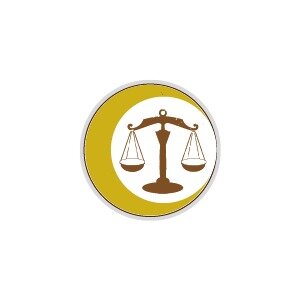Best Conveyancing Lawyers in Kumasi
Share your needs with us, get contacted by law firms.
Free. Takes 2 min.
Free Guide to Hiring a Real Estate Lawyer
List of the best lawyers in Kumasi, Ghana
About Conveyancing Law in Kumasi, Ghana
Conveyancing in Kumasi, Ghana refers to the legal process of transferring ownership of real property from one person to another. This can involve various types of properties, including land, houses, apartments, and commercial premises. Conveyancing ensures that the buyer obtains a valid title to the property, free from liens or encumbrances, and that the transaction is compliant with all relevant legal and regulatory requirements in Ghana. Given the importance of land and property ownership in Kumasi, the process is governed by a mix of statutory law, customary law, and local authority regulations.
Why You May Need a Lawyer
Engaging a lawyer is highly recommended whether you are buying, selling, or transferring property in Kumasi. Some common situations where legal help is essential include:
- Drafting or reviewing sale and purchase agreements
- Conducting due diligence to confirm the seller's ownership and uncover any encumbrances
- Advising on land registration processes and necessary documentation
- Dealing with disputes related to boundaries, title, or ownership
- Managing transfers involving family, inheritance, or partitioning of joint property
- Handling mortgage or bank-financed property purchases
- Ensuring compliance with both statutory and customary requirements
A lawyer's expertise helps protect your interests at every stage of the conveyancing process, minimizing the risk of future legal disputes or loss of investment.
Local Laws Overview
Conveyancing in Kumasi is governed by a set of local and national laws. Key aspects include:
- Land Title Registration Act, 1986 (PNDCL 152): Governs registration of land and property titles, ensuring legal recognition of ownership
- Land Act, 2020 (Act 1036): Provides comprehensive rules on land management, registration, transfers, and dispute resolution
- Customary Law: In Kumasi and many parts of Ghana, customary law plays a critical role, especially regarding family and stool (chiefdom) lands
- Metropolitan and District Assembly Bye-laws: Local authorities may have specific requirements for property transfers and building approvals
- Requirement for Written Agreements: All agreements for sale or transfer of land must be in writing to be enforceable
- Consent: Certain transactions (like transfer of family land or stool land) require the approval of family heads or chiefs
- Payment of Statutory Fees: Fees include stamp duty, registration, and sometimes ground rent, all paid to governmental or traditional authorities
Navigating these requirements is complex, and legal assistance ensures compliance and protection throughout the transaction.
Frequently Asked Questions
What documents are needed for a property transfer in Kumasi?
You will typically need a sale and purchase agreement, the seller's title deed or indenture, land commission records, a site plan, consent letters from relevant authorities or family heads if applicable, and proof of payment of required fees.
How long does the conveyancing process take in Kumasi?
The time frame can vary, but it generally takes several weeks to a few months, depending on the complexity of the transaction, due diligence requirements, and the speed of processing by the Land Commission and other authorities.
Can foreigners buy property in Kumasi?
Yes, foreigners can buy property in Ghana, including Kumasi. However, leasehold interests are generally limited to 50 years for non-citizens. It is essential to seek legal advice to understand the restrictions and ensure full compliance.
How do I know if a property has a valid title?
A lawyer can help conduct a title search at the Lands Commission to verify ownership and ensure the property is free from encumbrances or disputes.
What is the difference between customary land and government land?
Customary lands are managed by families, clans, or stools (chiefdoms) following traditional customs, while government lands are vested in the state or its agencies. The acquisition and transfer processes may differ between the two.
Who pays the conveyancing fees?
Typically, the buyer is responsible for most conveyancing costs, including legal fees, stamp duty, and registration fees. However, specific arrangements can be negotiated in the sale agreement.
What happens if there is a dispute during the transfer process?
Disputes can be handled through negotiations, mediation, or, if necessary, litigation in the courts. Lawyers are instrumental in resolving disputes and protecting your interests.
Is site inspection necessary before buying property?
Yes, physically inspecting the property is highly recommended. It helps verify boundaries, development restrictions, and the current state of the property, and ensures you are getting what is described in the documents.
Does the land need to be registered with the Lands Commission?
Yes, formal registration with the Lands Commission is crucial. It offers legal protection, public recognition of your ownership, and reduces the risk of fraud and disputes.
How do I find a reliable conveyancing lawyer in Kumasi?
Seek referrals from trusted sources, check membership with the Ghana Bar Association, and verify experience in property law and successful handling of similar transactions in Kumasi.
Additional Resources
- Lands Commission (Ashanti Region): The government body responsible for land registration, title searches, and verification of property ownership and boundaries.
- Ghana Bar Association: For finding accredited and experienced legal practitioners specialized in conveyancing.
- Office of the Administrator of Stool Lands: Handles matters related to customary and stool lands in Kumasi and the wider Ashanti region.
- Kumasi Metropolitan Assembly: For local building permits, zoning regulations, and district authority approvals.
- Non Governmental Organizations: Some local NGOs provide education and advocacy on land rights and property ownership in Kumasi.
Next Steps
If you are considering buying, selling, or transferring property in Kumasi, start by gathering as much information and documentation about the property as possible. Engage a qualified lawyer with experience in conveyancing in Kumasi to guide you through the process. Ensure you conduct a title search, site inspection, and complete all necessary registrations with relevant authorities. If you are unsure where to start, contact the Lands Commission or the Ghana Bar Association for guidance on finding a reliable legal professional. Taking these proactive steps will protect your interests and ensure a smooth and legally compliant conveyancing process.
Lawzana helps you find the best lawyers and law firms in Kumasi through a curated and pre-screened list of qualified legal professionals. Our platform offers rankings and detailed profiles of attorneys and law firms, allowing you to compare based on practice areas, including Conveyancing, experience, and client feedback.
Each profile includes a description of the firm's areas of practice, client reviews, team members and partners, year of establishment, spoken languages, office locations, contact information, social media presence, and any published articles or resources. Most firms on our platform speak English and are experienced in both local and international legal matters.
Get a quote from top-rated law firms in Kumasi, Ghana — quickly, securely, and without unnecessary hassle.
Disclaimer:
The information provided on this page is for general informational purposes only and does not constitute legal advice. While we strive to ensure the accuracy and relevance of the content, legal information may change over time, and interpretations of the law can vary. You should always consult with a qualified legal professional for advice specific to your situation.
We disclaim all liability for actions taken or not taken based on the content of this page. If you believe any information is incorrect or outdated, please contact us, and we will review and update it where appropriate.










